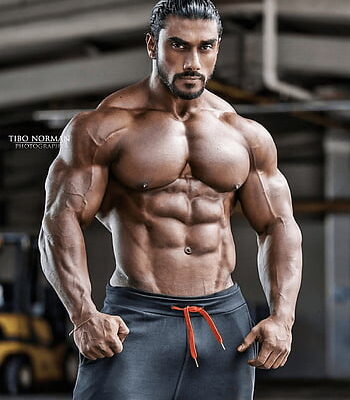Bodybuilding is more than just lifting weights; it’s a lifestyle, a competitive sport, and for some, a career. Bodybuilders undergo intense training regimens, strict diets, and various fitness programs to achieve their goals. However, the physical demands, risks of injury, and the long-term impact on the body make insurance a crucial aspect of a bodybuilder’s life, whether they are amateurs or professionals. Bodybuilder insurance is a specialized policy designed to provide coverage for a wide range of risks associated with the sport.
This article explores the importance of bodybuilder insurance, the types of coverage available, key benefits, and tips for selecting the right insurance plan for those in the world of bodybuilding.
Why Do Bodybuilders Need Insurance?
Bodybuilding involves a higher-than-average risk of injury compared to other activities. Whether training for competitions or simply pushing their limits in the gym, bodybuilders can suffer from a variety of injuries, including torn muscles, ligament damage, joint problems, and other physical ailments. Insurance helps mitigate the financial burden of these risks by covering medical expenses, lost income, and even long-term disability if the injury is severe.
Common Injuries in Bodybuilding
- Muscle Tears and Strains: Overexertion, improper lifting techniques, or accidents during intense workout sessions can lead to muscle tears and strains. Recovery from such injuries often requires medical treatment, physical therapy, and time away from training.
- Joint Damage: Repeated stress on joints can lead to damage, especially in the knees, shoulders, and elbows, which are crucial for lifting. In some cases, surgeries or long-term rehabilitation may be necessary.
- Ligament Injuries: Torn ligaments are another common issue that can result from excessive weightlifting. These injuries often require surgical intervention and can cause long-term mobility issues.
- Herniated Discs: Heavy lifting can cause damage to the spine, leading to herniated discs, which can be both painful and debilitating.
Given the frequency and severity of these injuries, it’s clear why having insurance is vital for bodybuilders who depend on their physical health to perform and compete.
Types of Bodybuilder Insurance
Bodybuilder insurance typically falls into a few key categories, each addressing specific risks associated with the sport. Understanding these types of coverage helps ensure that bodybuilders have the right protection for their unique needs.
1. Health Insurance
Standard health insurance is essential for covering the medical costs associated with bodybuilding-related injuries. It includes doctor visits, hospital stays, surgeries, and prescription medications. However, not all health insurance policies cover injuries from competitive sports or extreme fitness regimens, so it’s important to choose a plan that accommodates the specific risks of bodybuilding.
2. Accidental Injury Insurance
Accidental injury insurance is designed to provide financial support in the event of a sudden, unexpected injury. For bodybuilders, this might cover injuries sustained during training or competition. This type of insurance can help with medical bills, physical therapy, and other recovery-related expenses not fully covered by traditional health insurance.
3. Disability Insurance
Disability insurance provides income protection in case an injury prevents a bodybuilder from working, whether in a gym, a competition, or any other capacity. Bodybuilders who rely on their physical abilities for their livelihood, such as personal trainers or professional competitors, need this type of coverage to safeguard against the financial impact of being unable to work.
Short-term disability insurance typically covers temporary injuries that require weeks or months of recovery, while long-term disability insurance kicks in for injuries that result in permanent impairment or prolonged recovery periods.

4. Liability Insurance
Bodybuilders who work as personal trainers or run their own fitness businesses need liability insurance to protect against lawsuits. If a client gets injured during a training session, liability insurance can cover legal fees, settlements, and medical expenses. This is especially important for professional bodybuilders who offer personalized training programs or operate within a gym environment where they are responsible for the safety of others.
5. Competition Insurance
For professional bodybuilders, competition insurance is a critical form of coverage. This type of policy protects against event cancellations, injuries that occur during competition, and travel mishaps. In many cases, promoters and event organizers require competitors to have insurance before participating in major bodybuilding competitions.
6. Equipment Insurance
Bodybuilders often invest in expensive equipment, both for personal use and for training clients. Equipment insurance helps cover the cost of repairs or replacement if workout gear, machines, or other fitness tools are damaged or stolen.
Key Benefits of Bodybuilder Insurance
Bodybuilder insurance offers several key benefits, protecting athletes financially and allowing them to focus on their training without worrying about the “what ifs” of injury or legal issues. Some of the major benefits include:
1. Financial Protection from Medical Bills
Given the high cost of medical care, having insurance ensures that bodybuilders can get the treatment they need without having to pay out of pocket for expensive surgeries, therapies, or rehabilitation services. This allows for faster recovery and a more focused return to training.
2. Income Replacement During Recovery
Disability insurance provides income replacement if a bodybuilder is unable to work due to injury. This is especially important for those who make their living through personal training, sponsorships, or competitions. Without disability insurance, a significant injury could lead to financial instability.
3. Legal Protection
For those who train clients, liability insurance helps protect against legal issues arising from client injuries. A lawsuit can be financially devastating, even if the trainer is ultimately found not responsible. Liability insurance ensures that legal fees and potential settlements are covered, allowing trainers to focus on their work.
4. Peace of Mind
Knowing that they are covered for a wide range of potential risks allows bodybuilders to focus on their training and competitions without the constant worry of financial consequences if something goes wrong. This peace of mind can be just as important as physical protection, helping athletes perform at their best.
Factors to Consider When Choosing Bodybuilder Insurance
Selecting the right insurance policy is crucial to ensuring proper coverage. Here are some important factors bodybuilders should consider when choosing a plan:
1. Scope of Coverage
Not all insurance policies are created equal, and bodybuilders should carefully assess what types of injuries and risks are covered. For instance, some policies may not cover injuries sustained during competitions or high-risk training activities. Look for policies that specifically address the unique risks of bodybuilding.
2. Premium Costs
While it’s important to have adequate coverage, the cost of premiums should also be considered. Bodybuilders need to balance the price of their insurance with the level of coverage they require. Some insurance companies offer customized plans that cater to athletes, which can provide cost-effective solutions.

3. Policy Exclusions
It’s vital to read the fine print and understand any exclusions in the policy. For example, some health insurance plans might exclude injuries resulting from weightlifting accidents, while others might not cover pre-existing conditions like chronic joint issues or herniated discs.
4. Claim Process and Support
The ease of filing a claim and the level of support provided by the insurance company are crucial. A company that offers fast, hassle-free claims processing can make a significant difference in how quickly a bodybuilder recovers financially from an injury.
5. Reputation of the Insurance Provider
It’s important to choose a reputable insurance provider with a history of working with athletes and fitness professionals. Checking reviews, testimonials, and the provider’s experience in the industry can help ensure that the company is reliable and capable of handling claims efficiently.
Tips for Bodybuilders Seeking Insurance
- Consult with an Expert: Working with an insurance agent who specializes in sports or bodybuilding can help athletes find the best coverage options. These professionals understand the unique risks and can recommend policies tailored to specific needs.
- Evaluate Your Needs Regularly: As bodybuilders progress in their careers, their insurance needs may change. It’s essential to review policies regularly and adjust coverage based on current circumstances, whether it’s increasing coverage before a major competition or adding liability insurance when starting a personal training business.
- Document Everything: In the event of an injury, having detailed records of your training regimen, medical history, and injury specifics can make it easier to file a claim and get the necessary support from your insurance provider.
Conclusion
Bodybuilding is a physically demanding and potentially risky pursuit, and insurance plays a crucial role in protecting athletes from the financial fallout of injuries, lawsuits, or other unforeseen events. Whether it’s health insurance, accidental injury coverage, or liability protection, bodybuilders need to invest in the right policies to safeguard their careers and livelihoods. By understanding the types of coverage available and carefully selecting the right insurance plan, bodybuilders can ensure that they are prepared for any challenges that come their way, allowing them to focus on what matters most: achieving their fitness goals.




